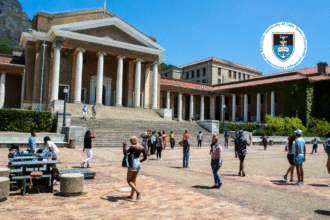College Applications Open Friday – What South African Students Should Know in 2026. The college admissions process in 2026 has undergone major changes. Since the COVID-19 pandemic, traditional norms have shifted: acceptance rates have dropped at top institutions, standardized test requirements are now optional at many universities, and the role of artificial intelligence in education has reshaped student learning and applications. As the Common Application opens this Friday, here’s what every South African student and parent needs to know to prepare effectively.
Changing Face of College Admissions Post-COVID-19
The coronavirus pandemic has left a lasting impact on how institutions handle admissions. In 2026, college acceptance rates continue to decline, especially at elite institutions like Ivy League universities and top global colleges. This decline reflects increased competition, more international applicants, and shifting evaluation criteria.
What Is the Common Application and Why Does It Matter?
The Common Application is a centralized online portal used by hundreds of colleges and universities, mostly in the United States, to streamline the admissions process. Starting Friday, students can apply to multiple institutions using this single platform.
Key Benefits of the Common App:
| Feature | Benefit for Students |
|---|---|
| One application form | Apply to multiple universities simultaneously |
| Unified document upload | Submit essays, CVs, and letters just once |
| Deadline management | Track deadlines and requirements for each college |
| Essay prompts provided | Helps students prepare tailored submissions early |
South African Perspective – What You Should Know
As a South African student applying to international universities, you should be aware of the following updates:
- Standardized Tests (SAT/ACT): Most universities in the U.S. and some in Europe no longer require these. However, high scores can still enhance your application.
- Matric Results: Strong NSC or IEB results remain essential for international admissions.
- Recommendation Letters: Choose referees who can provide detailed insight into your academic and personal growth.
- Personal Statements: Write compelling essays that reflect your experiences in a South African context – from challenges faced during load shedding to community involvement.
Acceptance Rates Are Lower Than Ever
According to recent trends, college acceptance rates at selective institutions have dropped to below 5% in some cases. Here’s a comparison of top university acceptance trends:
| University | 2019 Acceptance Rate | 2024 Acceptance Rate |
|---|---|---|
| Harvard University | 4.7% | 3.2% |
| Stanford University | 4.3% | 3.5% |
| MIT | 6.7% | 4.1% |
| University of Cape Town | 21.5% | 19.8% |
This drop is partly due to increased global interest in these institutions and the removal of testing barriers.
Rise of Test-Optional Admissions
One of the most significant changes post-pandemic is the rise of test-optional policies. Many universities now allow students to choose whether to submit SAT or ACT scores.
What This Means for You:
- If your scores are strong, include them to strengthen your application.
- If you haven’t written the SAT/ACT, focus on your school grades, essays, and extracurricular activities.
- Some scholarships may still require test scores, so read the fine print carefully.
Artificial Intelligence and Education
AI tools like ChatGPT, Grammarly, and AI-assisted tutoring apps have changed how students prepare for university. But be cautious some universities have strict policies against using AI to write personal statements or essays.
Tips for Using AI Ethically:
- Use AI to proofread and improve grammar, not to write content from scratch.
- Focus on authentic storytelling about your journey as a student.
- Check university policies on AI-generated content in admissions.
How to Prepare a Strong College Application in 2026
Follow these steps to stand out in the competitive college landscape:
- Start Early: Begin researching colleges, deadlines, and requirements now.
- Write Your Essays Thoughtfully: Address why you want to study abroad, how your South African background shapes you, and what you plan to contribute to campus life.
- Build Your Resume: Include leadership roles, volunteer work, entrepreneurship, or anything that sets you apart.
- Ask for Recommendation Letters Now: Give your referees time to write thoughtful letters.
- Review Everything Carefully: One error can hurt your chances, so double-check all submissions.
Important Dates for the Common Application
| Date | Action |
|---|---|
| Friday, 2 August 2025 | Common App officially opens |
| September – December | Submit early decision and early action applications |
| January 2026 | Regular application deadlines for most institutions |
| March – April 2026 | Notification of acceptance or rejection |
| May 2026 | Final decision deadline for admitted students |
Common Mistakes to Avoid in 2026 Applications
- Waiting too long to start
- Ignoring optional essays
- Using AI tools unethically
- Missing out on scholarships due to incomplete applications
- Neglecting personal branding in your essay
Final Advice for South African Applicants
If you’re aiming for international universities, remember that your story matters as much as your scores. Colleges seek diverse voices and value students from various cultural backgrounds. Highlight your South African heritage, challenges overcome, and your commitment to making a difference.
Applying in 2026 means embracing change, staying informed, and being authentic.
Conclusion
With college applications opening this Friday, students in South Africa and beyond must navigate a transformed admissions landscape. Understanding the latest trends, low acceptance rates, test-optional policies, and the ethical use of AI will give you a competitive edge. Prepare early, stay authentic, and put your best foot forward for the 2026 college admissions season.










